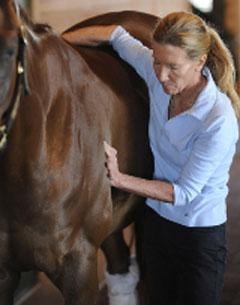|
Equine Rescue Under Fire - How to Make Things BetterHorse Health. Written by admin
Equine shelters are expensive to run and funding is scarce. Our dwindling charitable resources must be given wisely and strategically to organizations that deliver quality care to the horses with minimal administrative cost. I offer these suggestions to readers so that your donations are invested wisely.
Give locally - There is no better assurance that your dollars are being spent well than by being a regular visitor to the facility which keeps the horses you help to support.
Make it Local- If the organization you decide to donate to keeps horses too far away to allow visiting, find a horseman or a veterinarian who is local to do the visits on your behalf.
Standards are Standards are Standards - Is the fencing safe? Do the horses look well? Is it overcrowded? Are the stalls clean and safe? Buckets clean? Fresh water available? Are sick or new intake horses isolated? Is the staff friendly and knowledgeable? Shelters for pasture kept horses? Adequate quality hay? Farrier care adequate? The basic standards you know to apply for your own responsible horse-keeping should be in place at any shelter. Simply put- Would you be happy to have your horse reside there? What questions would you ask?
Standards of Care and Administration in Writing - Any equine shelter should be happy to provide you with a written copy of their standards of care and administrative policies. These are required by most foundations in the grant proposal process. Included would be a general description of basic daily and routine care provided, intake and adoption policies, veterinary and euthanasia policies, volunteer program description. If they say that all horses receive regular farrier care, ask for the farriers name and verify it.
Record Keeping - Each shelter horse should have a record of intake, care history, veterinary history, photographs, Coggins test, vaccinations, etc. Shelter administrators are usually happy to show supporters the records that offer proof of responsible care and management.
Horse Health - It helps no horse to be warehoused with severe lameness or illness if responsible veterinary care and oversight cannot be provided. If the rescue you visit has unwell horses, each should be under the active care of a local veterinarian. Severe starvation cases require medical attention in addition to supervised re-feeding.
Local Animal Control Agency- Check the local animal control agency to ask if any negligence reports have been filed against the shelter.
Mixing Charitable Work with Private Horse Ownership - Ask the shelter director if any board members, friends, or donors ride the horses for pleasure or keep privately owned horses at the shelter. It is essential to fully separate personal horse ownership or use from the resources of the charity.
Viability of the Charitable Organization - Every charity in the USA must file a 990 form with the IRS. Most can be accessed online free of charge though www.guidestar.org Is the organization operating within its budget? Are the administrative expenses reasonable? Do they have the required insurances for employees and volunteers who work with the horses?
Earmarked Giving - After you review the quality of care provided, if there are deficiencies in your opinion you can ask the shelter’s director if they would agree to make specific improvements if you provided funds earmarked for such. Receipts should be provided to document the use of funds. One example of this occurred at a shelter that had requested a grant for general operating expenses. My site visit revealed dangerously inadequate fencing. The funds were offered but only with the condition that they be used to replace the fence.
Other Ways to Help - The horse industry is based on networking; for sales, training, teaching, shipping, sport and breed associations, etc. You may have the power to help a local rescue organization by using your contacts to help find foster homes or training assistance for adoptable horses, to take the burden off the shelter. I once realized that a shelter I evaluated was in an area where many clients had large farms. I sent a letter of endorsement for this well run organization to the local farm managers and feed supplier asking if they might just buy one extra bag of feed each week from the local supplier for this rescue, and offer 10 bales of hay to them with each truckload delivered to their farms. Within six weeks the shelter had more feed coming in than they could use and all it took was asking for something small and promising that the generosity was being very well invested.
Clinics and Events to Benefit the Shelter - By donating a portion of the proceeds from a clinic or other event that you may already offer you will not only raise funds but you will raise awareness for the organization’s good work. Invite the shelter director to come to your event, mingle and provide horsemen with information about their good work. Be part of the Solution to Reduce Numbers of Homeless Horses - Have a retirement plan in place for your own horses. There are some very well run retirement farms that charge reasonable fees for pasture sound horses if you can’t keep them past their riding days. Some breed registries have wonderful rescue services where unwanted horses of the breed will be re-homed, no questions asked, but we could use more of these programs. Breed your own horses responsibly. Surplus begins in the breeding shed and especially in these harsh economic times, please be realistic about the market before bringing another foal into the world.
Bayer Legend Award-2010
Return to Horse Riding Connection
|

